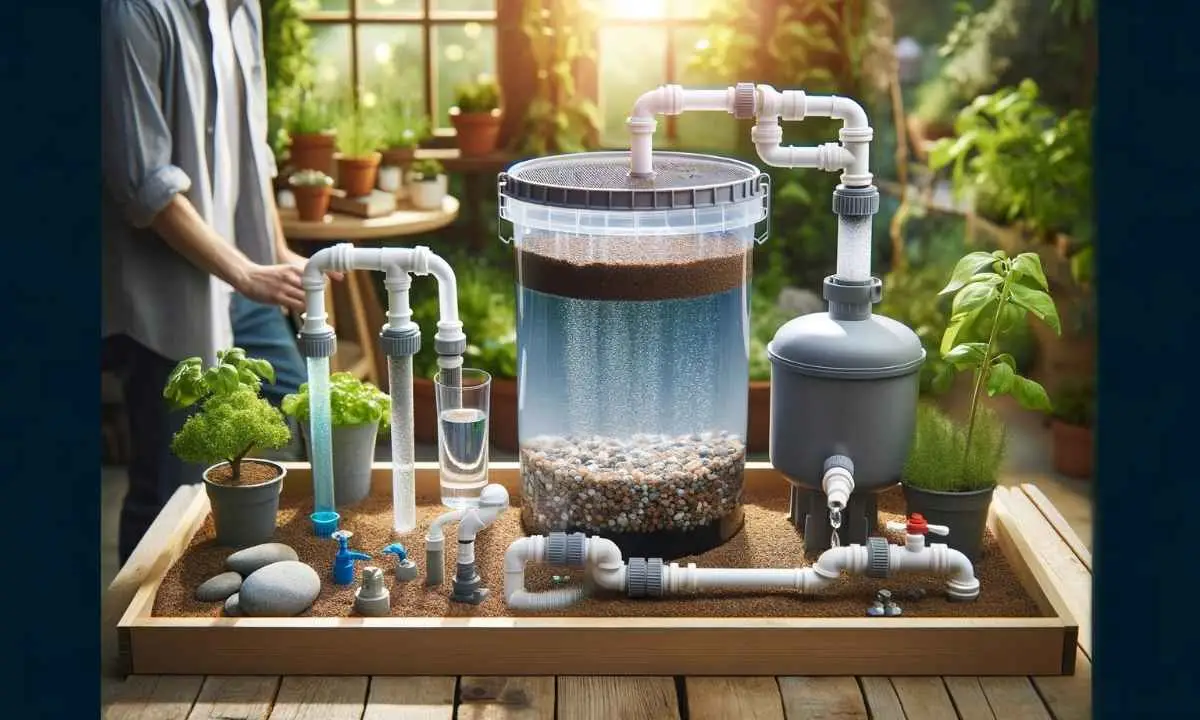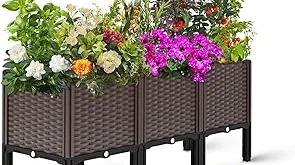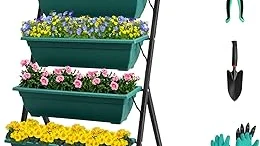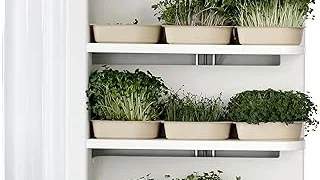Are you looking for ways to conserve water in your garden while being environmentally responsible? One innovative solution is using grey water—the gently used water from sinks, showers, and washing machines. As water shortages and droughts become more common, finding ways to reduce our reliance on potable water is more important than ever. Filtering grey water for garden use is an effective and sustainable way to address this challenge.
But how do you safely filter grey water for gardening? And what are the benefits and potential risks? In this article, we’ll walk you through the process of filtering grey water for garden use, ensuring it’s both effective and safe. You’ll learn practical steps, essential considerations, and expert insights to help you get started.
What is Grey Water, and Why Should You Use It?
Before discussing how to filter grey water, let’s first understand what it is and why it’s such a valuable resource for gardeners.
Grey water refers to wastewater generated from household activities like showering, doing the dishes, or laundry. This water contains soap, dirt, grease, and other organic matter but is distinct from black water, which comes from toilets and contains harmful pathogens and bacteria.
The benefits of using grey water for garden irrigation are clear:
- Water Conservation: Using grey water helps reduce water consumption, especially in areas with limited water resources.
- Cost Savings: Reusing water that would otherwise go down the drain can lower your water bills.
- Sustainable Gardening: Greywater recycling promotes sustainability by unnecessarily reducing the amount of water that gets flushed away.
Is It Safe to Use Grey Water in the Garden?
While grey water is generally safe to use in the garden, there are a few considerations. The primary concern is the quality of the water, which can vary depending on the source. For example:
- Soap and Detergents: The harsh chemicals in soaps and detergents can be harmful to plants, especially when used in large quantities.
- Bacteria and Pathogens: Although grey water is not as contaminated as black water, it can still carry bacteria or viruses that might affect plant health or enter the soil.
However, there are ways to mitigate these risks and safely filter grey water for your garden. With the right filtration system, you can reduce contaminants and ensure your plants benefit from this water source.
How to Filter Grey Water for Garden Use
Filtering grey water for garden use is not as complicated as it may sound. Below are the steps to create a safe and effective system.
1.Understand the Types of Grey Water and Choose What to Recycle
The first step is understanding which types of greywater are suitable for reuse. Here are some general guidelines:
- Safe Sources: Water from showers, baths, sinks (excluding those used for washing diapers), and washing machines.
- Avoid Black Water: Never use water from toilets or water contaminated with hazardous chemicals (like bleach or ammonia).
Once you’ve identified the suitable sources, you can start planning your greywater system.
2.Set Up a Basic Grey Water System
There are different types of greywater systems, ranging from simple to complex. Here’s an essential guide for setting up a system that filters grey water for garden use:
- Direct Plumbing System: This involves rerouting grey water directly from household drains to the garden. This system typically includes:
- Diverter Valve: A valve that allows you to redirect grey water from the drain to the garden. It also ensures the water can be diverted back to the sewer.
- Sand or Gravel Filter: This simple filter removes larger particles and debris from the water. You can create a DIY filter using sand, gravel, and mesh materials.
- Distribution System: You can use a drip irrigation system or soaker hoses to distribute filtered grey water evenly to your garden.
- Pump System (For Larger Gardens): A pump may be used to move the water from the collection tank to the garden for larger or more advanced setups. This system often includes a more complex filtration system, such as a biofilter or charcoal filter, to ensure clean water.
3.Create a Filtration System
The key to safely using grey water is a sound filtration system. You’ll need to filter out debris, soap residue, and chemicals to ensure plant-friendly water. Here are some standard filtration methods:
- Sediment Filter: Removes larger particles like hair, dirt, and soap residue.
- Biofilter: A biofilter uses a combination of sand, gravel, and sometimes charcoal to further filter grey water, breaking down organic material and neutralizing some chemicals.
- Charcoal Filter: Activated charcoal can remove odors and some contaminants, making the water safer for your plants.
Tip: If you use harsh chemicals in your laundry or cleaning products, consider switching to plant-safe, biodegradable options to avoid harming your plants and soil.
4.Build or Buy a Grey Water Filtration System
If you prefer a ready-made solution, several companies offer pre-assembled grey water filtration systems for home gardens. Some systems are designed for small-scale use, while others can handle more significant, complex setups. Popular brands like The Laundry to Landscape System or Greywater Action offer easy-to-install options for home gardeners.
Important Considerations When Using Grey Water for Gardening
Before you start using grey water in your garden, there are a few key factors to keep in mind:
- Water pH: Grey water can be more acidic or alkaline depending on the soaps and detergents used. Test the pH regularly and adjust if needed, as extreme pH levels can damage plants.
- Chemicals and Detergents: Avoid using grey water from sources that use harsh chemicals, such as bleach, ammonia, or certain laundry detergents. These can damage plants or contaminate the soil.
- Plants to Avoid: Some plants are more sensitive to grey water than others. Avoid using grey water on edible plants like tomatoes, peppers, or leafy greens unless the water is free from harmful chemicals.
FAQ: Common Questions About Filtering Grey Water for Garden Use
1.Can I use grey water for edible plants?
Grey water can be used on edible plants, but only if it has been properly filtered and is free from harmful chemicals. It is best to use grey water on non-edible plants or ornamental garden plants.
2.How often should I clean my grey water filter?
The filter should be cleaned regularly—at least once every 3-6 months—depending on the volume of grey water used. A clean filter will ensure optimal performance and reduce the risk of clogging.
3.Can I use laundry water for my garden?
Laundry water is generally safe for the garden, but avoid using water that contains bleach or fabric softeners, which can harm plants. Opt for eco-friendly, biodegradable detergents for a safer option.
Start Recycling Grey Water for a Sustainable Garden
Filtering grey water for garden use is a fantastic way to conserve water, reduce utility bills, and support sustainable gardening practices. With the right filtration system in place, you can safely reuse water from your household to irrigate your plants. Remember to consider the types of grey water you’re using, set up a suitable filtration system, and make necessary adjustments to ensure it’s safe for your plants.
Ready to set up your greywater system? Evaluate your household’s greywater sources and consider implementing a filtration solution. For more gardening tips and sustainable living ideas, subscribe to our newsletter and stay updated!






